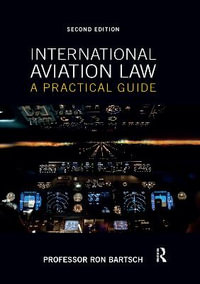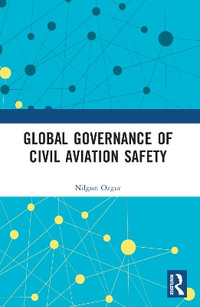Elgar Advanced Introductions are stimulating and thoughtful introductions to major fields in the social sciences and law, expertly written by the world's leading scholars. Designed to be accessible yet rigorous, they offer concise and lucid surveys of the substantive and policy issues associated with discrete subject areas.
Frans von der Dunk, a leading authority on space law, presents a nuanced introduction to the topic, explaining the legal rules, rights and obligations applicable to activities in outer space and activities that precede operations in space. He analyzes the interaction of these elements as well as how international organizations relate to the core tenets of space legislation.
Key features include:
- an accessible and engaging writing style
- a forward-looking approach to how technological developments will be addressed in law
- discussion of space law within the boundaries of technology, operations, economics and politics
- consideration of fundamental paradigm changes, such as the increasing commercialization and privatization of space activities.
This Advanced Introduction is ideal for advanced students looking for a clear and concise overview of space law. It also provides an entry point for academics and practitioners who need to understand the relationship between space and law.
Industry Reviews
In the best tradition of Manfred Lachs, Frans Von der Dunk's most recent book provides a new, refreshing and well structured overview of the most important aspects and characteristics of space law and the many contingent legal regimes that accompany its operations. It offers a useful and insightful guide into some of its current developments under the progressive events that continue to shape and adapt it to new circumstances. It sheds new light on the nature and impact of the rules created to govern the ''fourth realm''' of human activity.' --Peter Jankowitsch, International Academy of Astronautics
'A new book by Professor Frans von der Dunk, one of the most learned space lawyers, is always an important event in the field. In his Advanced Introduction to Space Law he presents an excellent view of the current status and evolution of space law, avoiding the opposing poles of trying to maintain every rule of the present legal framework on the one hand and discarding every rule that seems to be no longer relevant to new activities on the other. His presentation is well organised into seven chapters which enable the reader to have a clear view of every aspect of the law applicable to activities in outer space.'
--Armel Kerrest, European Centre for Space Law, France

























